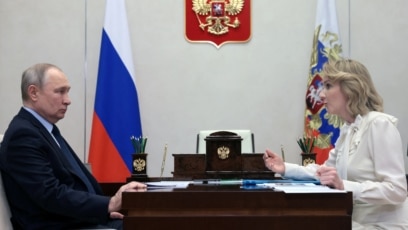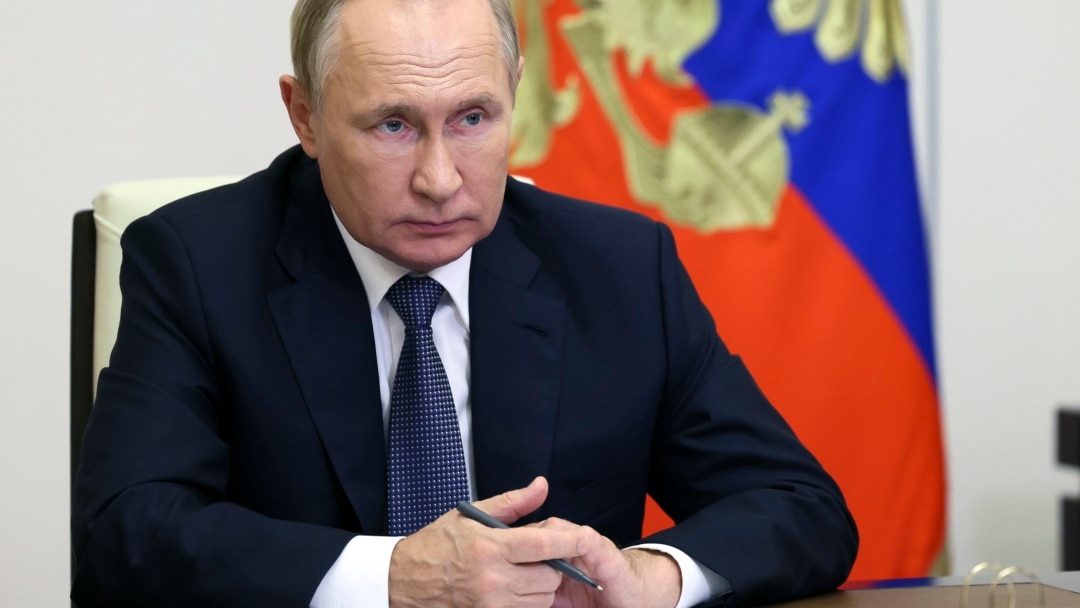Russia Imposes Sanctions on ICC Prosecutor Following Bid for President Putin’s Arrest
Tensions between Russia and the International Criminal Court (ICC) have escalated dramatically as Russia announced a series of punitive measures against the ICC prosecutor who recently sought the arrest of President Vladimir Putin. The move comes in response to what Russia has labeled a “provocative” attempt to undermine its sovereignty and political stability.
The International Criminal Court, based in The Hague, Netherlands, is an independent judicial body established to prosecute individuals for war crimes, genocide, and other crimes against humanity. Its recent actions have thrust it into the center of an international dispute involving one of the world’s most influential nations.
The dispute centers around the ICC prosecutor’s attempt to issue an arrest warrant for President Vladimir Putin, accusing him of alleged war crimes in the conflict in Eastern Ukraine. The move was met with vehement opposition from the Kremlin, which characterized it as an affront to Russia’s standing on the global stage.
In response to the ICC’s actions, Russia swiftly imposed sanctions on the ICC prosecutor, further straining diplomatic relations and raising concerns about the role of international institutions in addressing conflicts involving major powers. These sanctions include freezing assets, imposing travel bans, and severing diplomatic ties with the ICC prosecutor and their team.
The Russian government’s decision to impose sanctions has been met with mixed reactions from the international community. While some nations have expressed support for Russia’s stance on defending its sovereignty, others worry that the move could set a precedent for powerful nations to evade accountability on the global stage.
Russia’s Foreign Minister, Sergei Lavrov, defended the sanctions, stating, “We cannot allow international bodies to be used as tools for political manipulation. The ICC’s actions have shown a blatant disregard for our country’s sovereignty and judicial system.”
This escalating conflict between Russia and the ICC raises important questions about the balance between international justice and state sovereignty. Critics argue that the ICC’s actions risk being interpreted as an overreach, with potentially serious consequences for international diplomacy and cooperation.
The ICC’s decision to pursue the arrest of a sitting head of state also highlights the complexities of addressing alleged crimes committed by high-ranking government officials. The case has sparked debates over whether such actions could provide justice for victims or whether they could lead to further instability and conflict.

Furthermore, the Russian sanctions against the ICC prosecutor could have ripple effects for the broader international legal framework. Some legal scholars and experts worry that these sanctions could discourage individuals from cooperating with international courts, fearing potential repercussions from powerful states.
The situation also underscores the ongoing power struggles between major world powers and international institutions. As nations like Russia assert their sovereignty and resist perceived interference, the role and effectiveness of organizations like the ICC are called into question.
In response to the sanctions, the ICC released a statement reaffirming its commitment to carrying out its mandate “impartially and independently.” The statement emphasized the ICC’s responsibility to hold individuals accountable for serious crimes under international law, regardless of their positions of power.
However, the complexities of this situation go beyond legal considerations. They delve into geopolitics, historical context, and the delicate balance of international relations. Russia’s historical experience with external intervention, particularly during the Soviet era, has contributed to a deeply ingrained suspicion of foreign influence.




President Putin’s government has portrayed itself as a defender of Russian interests against perceived Western encroachments. This narrative resonates with a significant portion of the Russian population, contributing to the widespread support for the government’s actions.
As the international community watches this tense standoff unfold, there are concerns that the situation could spiral into a larger diplomatic crisis. The path forward remains uncertain, with potential consequences for global security, international law, and the future of diplomacy.
In conclusion, the recent clash between Russia and the ICC over the attempted arrest of President Vladimir Putin has ignited a contentious debate about the intersection of international justice and state sovereignty. Russia’s decision to impose sanctions on the ICC prosecutor has only added fuel to the fire, intensifying an already volatile situation.
The incident highlights the challenges of addressing alleged crimes committed by powerful leaders and the broader implications for international diplomacy. As the standoff continues, the world watches closely, holding its breath for what comes next in this high-stakes confrontation.
This post was originally published on this site be sure to check out more of their content.








